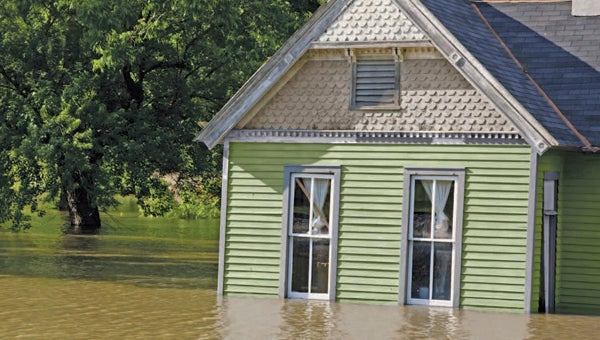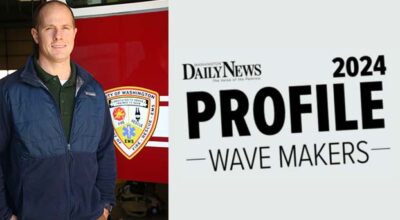What a relief — Homeowners get break on insurance
Published 6:30 pm Friday, March 14, 2014

FILE PHOTO | DAILY NEWS
HIGH WATER: Flooding, often related to hurricanes, causes much damage to residential and commercial properties in eastern North Carolina. A bill approved by Congress on Thursday offers homeowners relief from large increases in their insurance bills.
Staff, wire reports
President Barack Obama is set to sign into law a bipartisan bill relieving homeowners living in flood-prone neighborhoods from big increases in their insurance bills.
The legislation, which cleared Congress on Thursday, reverses much of a 2012 overhaul of the government’s much-criticized flood insurance program after angry homeowners facing sharp premium hikes protested.
The Senate’s 72-22 vote sent the House-drafted measure to Obama. White House officials said he’ll sign it.
The bill would scale back big flood insurance premium increases faced by hundreds of thousands of homeowners. The measure also would allow below-market insurance rates to be passed on to people buying homes in flood zones with taxpayer-subsidized policies.
State Rep. Paul Tine, whose 6th District includes part of Beaufort County and all of Hyde, Dare and Washington counties, hailed the vote as a victory for property owners in coastal North Carolina, where flooding is a major problem when hurricanes strike the area.
“This is a big step in the right direction. It isn’t going to fix all the problems, but it’s certainly fixes a lot of them. This was an issue where people that built their homes properly at the time they were built were going to get penalized because the feds changed the rules on them,” Tine said. “I’m very happy that the Senate and the House realized that they made a mistake.”
Tine, who lives in Dare County, talked about the role state legislators have when it comes to keeping an eye on flood-related legislation at the national level.
“Really, our job has been to help educate our state delegation (to Congress). That’s why we traveled up there to meet with all 14 of the legislators. We’re just been advocating on behalf of the people,” Tine said.
Critics say Washington is caving to political pressure to undo one of the few recent overhauls it has managed to pass.
“While politically expedient today, this abdication of responsibility by Congress is going to come back and bite them and taxpayers when the next disaster strikes,” said Steve Ellis, vice president of Taxpayers for Common Sense, a Washington-based watchdog group. “Everyone knows this program is not fiscally sound or even viable in the near term.”
The hard-fought 2012 rewrite of the federal flood insurance program was aimed at weaning hundreds of thousands of homeowners off of subsidized rates and required extensive updating of the flood maps used to set premiums. But its implementation stirred anxiety among many homeowners along the Atlantic and Gulf coasts and in flood plains, many of whom are threatened with unaffordable rate increases.
The legislation offers its greatest relief to owners of properties that were originally built to code but subsequently were found to be at greater flood risk. Such “grandfathered” homeowners currently benefit from below-market rates that are subsidized by other policyholders, and the new legislation would preserve that status and cap premium increases at 18 percent a year. The 2012 overhaul required premiums to increase to actuarially sound rates over five years and required extensive remapping.
Many homeowners faulted the Federal Emergency Management Agency’s implementation of the 2012 law. In some instances, homeowners from areas that had never been flooded were shocked and frightened by warnings of huge, unaffordable premium increases. The resulting uproar quickly got the attention of lawmakers and peppered them with complaints.
“In many cases, these are people with $100,000 homes that are getting (flood insurance) bills that are more than their mortgage payments,” said Rep. John Fleming, R-La. “You had certainly a significant number of people who were really going to be hurt seriously through no fault of their own.”
The top leaders of both parties came on board, overcoming resistance from defenders of the 2012 overhaul like House Financial Services Committee Chairman Jeb Hensarling, R-Texas, whose turf was trampled along the way.
“Members on both sides of the aisle and a broad geographic distribution got involved. And when you get enough members involved, it’s going to get the attention of the leadership, and that was a major factor,” said Rep. Charles Boustany, R-La.






